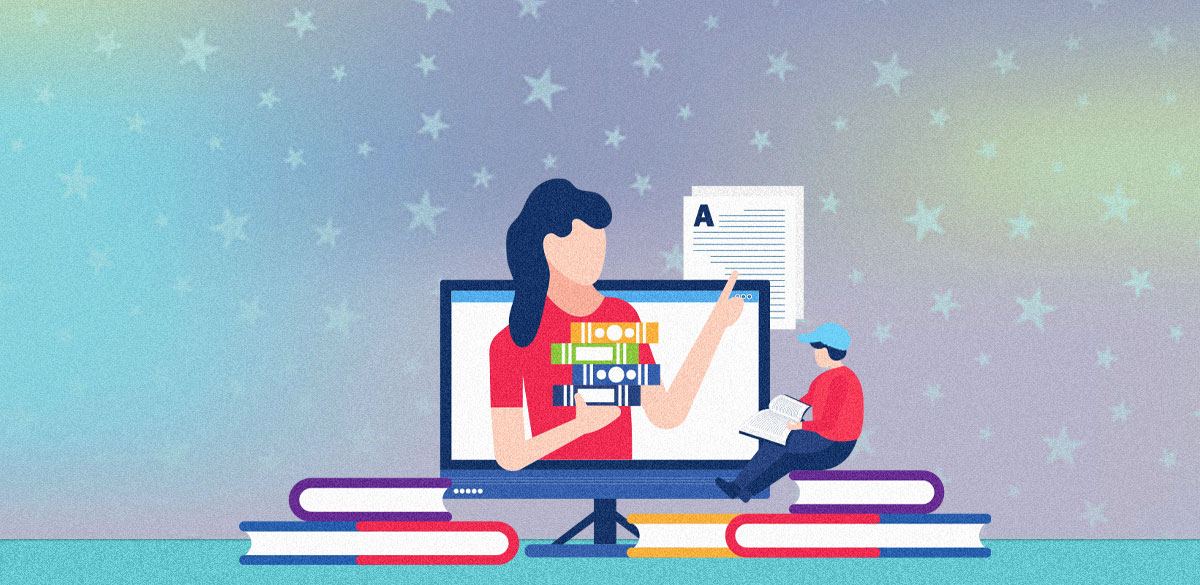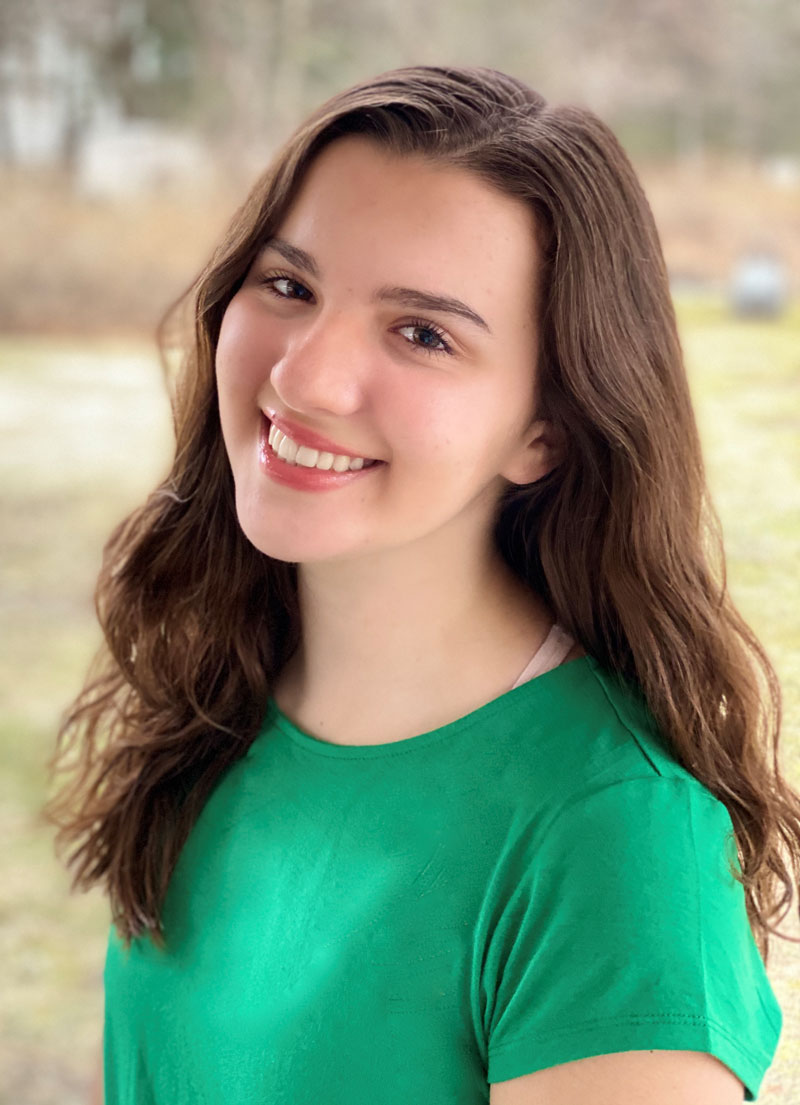Igniting a Student's Interest in Reading is the "Greatest Feeling in the World" | Opinion
A college student finds connection through a love of reading while mentoring a New York City elementary school student with the Read Ahead literacy program.
 |
SLJ modified: jadamprostore/Getty Images |

During COVID-19 quarantine as a high school sophomore, I made a half-hearted New Year’s resolution to read more. I didn’t quantify or create guidelines for my goal, but I became obsessed with reading, stacking books on my bedroom floor and reading late into the night. It became clear to me that reading wasn’t only a hobby. Reading made me more curious about my own surroundings. It made me eager to learn, quicker to understand people. When I applied to college, I made a point to pick schools with strong literature and humanities programs. I was accepted at Columbia University and am now an English major there.
Moving into school was a big change—even though I lived a mere 45 minutes away in New Jersey, my hometown seemed a different world from New York City. Unsure how to breach the society of the city, which seemed vast and unknowable, I looked for ways I could interact with real New Yorkers, using my love of literature as a means of connection. I found Read Ahead—a NYC-based nonprofit that connects volunteer mentors with elementary school students to improve their reading skills. Read Ahead partners with Columbia and corporations and organizations throughout the city to find mentors. Established in 1991, Read Ahead places mentors with approximately 1,000 children in grades 1 to 5 every year.
After a thorough application process, I was accepted as a mentor. Before we started with students, an online training process explained that literacy and social emotional learning (SEL) were the two main pillars of the program. Mentors would help with sounding out and reading words, as well as comprehending the words’ definitions and their significance to the story. Through SEL, we were to center the student’s relationship skills and self-awareness.
Upon completing my training, I became a reading mentor for a fourth-grade student at Public School 125, just nine blocks from my dorm on campus. Each week, my nine-year-old mentee would enter an hour-long Zoom call with me or my mentor partner, with whom I traded weeks throughout the year. Zoom calls have been Read Ahead’s practice since the pandemic started, but they began incorporating optional in-person mentor sessions to the schedule.
 |
Caroline Nieto |
When I first met with my mentee, I could feel that this kind of communication intimidated him. I was shy as a kid myself, so I could see that he wasn’t unenthusiastic, but introverted. I wanted to cater to his way of learning the best I could since the relationship he built to reading at this age would influence the rest of his reading career. We had access to Epic, a digital reading program with over 40,000 children’s books at all reading levels. With this platform, my mentee and I picked out what we wanted to read during each session.
I asked him if he had any hobbies or interests that he wanted to read about, but he was shy to answer. Instead, I gave him specific concepts or titles I found on the website. He perked up when I described a mystery book. We picked one about a missing turtle in an elementary school classroom, because reading about familiar settings always helped me relate to books.
I would typically start by reading several pages out loud, then I would let my mentee take a turn once he knew the book’s setup. Each page or so, I would stop and ask him about any unfamiliar words, and if he didn’t know what they meant, I would give him a simple definition. With words that were difficult to pronounce, I would let him sound it out, then guide him if he didn’t get it right after several tries. After a couple of pages, I would ask him if he wanted to keep reading, and he always said yes. It took some encouragement to open him up to reading with confidence, but his interest in the stories always helped him keep going.
I wanted to show my student that there is more to reading than the technical aspects of sounding out words. I wanted to show him the joy of reading, so I also asked about the events of the story and if he could relate to them. I could tell that when he had learned about a topic in school, he was quicker to answer my questions about specific words or plot elements. There were bullies in our book that took place in elementary school, so we discussed the characters’ behavior and what they could do differently to avoid fights with other kids.
While Read Ahead’s primary mission is to promote literacy, the program also aims to complement an all-around education. Before each session, the program manager would email mentors additional resources we could use for the week, which were often specific to a particular season or holiday. During the winter, we received holiday “would you rather” quizzes, word searches, and matching games. For Martin Luther King Jr. Day in January, my mentee and I read a picture book about King’s work in the American civil rights movement. I was surprised to see that he already knew a lot about King from what he learned in school. When we did a crossword puzzle on the topic, he knew almost every answer and responded quickly and enthusiastically. I was glad that Read Ahead encouraged teaching about these historic events because some of the important activist and artistic movements in New York City took place right in Harlem, where my mentee went to school.
Read Ahead’s impact goes beyond just reading practice—connecting with another student, learning history, and improving communication are all part of the experience.
This coming school year, I plan to go back to Read Ahead as a mentor. I can connect with a new student, possibly from a new school, and hopefully attend some events in person. Read Ahead has allowed me to put my education into a greater perspective, bringing me back to the fundamentals of why I am still a student, especially a student of literature. It has been so rewarding to see some of my own love of reading reflected in another person. Igniting that interest is the greatest feeling in the world, and, for a child, it can be life-changing.
RELATED
The job outlook in 2030: Librarians will be in demand
The job outlook in 2030: Librarians will be in demand
ALREADY A SUBSCRIBER? LOG IN
We are currently offering this content for free. Sign up now to activate your personal profile, where you can save articles for future viewing






Add Comment :-
Be the first reader to comment.
Comment Policy:
Comment should not be empty !!!